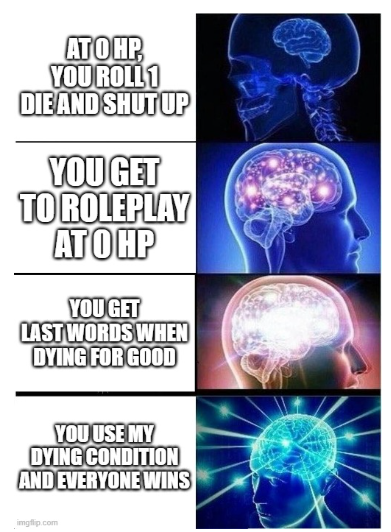this post was submitted on 23 Oct 2023
84 points (81.8% liked)
RPGMemes
12163 readers
190 users here now
Humor, jokes, memes about TTRPGs
founded 2 years ago
MODERATORS
you are viewing a single comment's thread
view the rest of the comments
view the rest of the comments

Yeah, in PF2E a flat check is used when you want something to be completely unmodified. A DC10 flat check would be a 55% chance for everyone.
Outside of this case, when do they come in use? It seems like an unconventional design choice as it's basically chance, outside of the occasional luck check or death saves, where does it come up?
I'm mostly asking as my experience is very 5e centric.
The common ones besides death saves are hindered attacks. When grappled you have to make a DC5 flat check in order to get an attack in (grappled being different from restricted, which means you've essentially been pinned and are unable to attack).
Attacking a hidden creature (you know roughly where it is) requires you make a DC 11 flat check.
Attacking an undetected creature (no idea where it is at all) requires you make the same flat check but rolled blindly, so you won't know if your damage actually hits the creature or not.
There are other cases for flat checks, some random encounter tables use them for example, but they mostly tend to be GM oriented rather than player oriented.